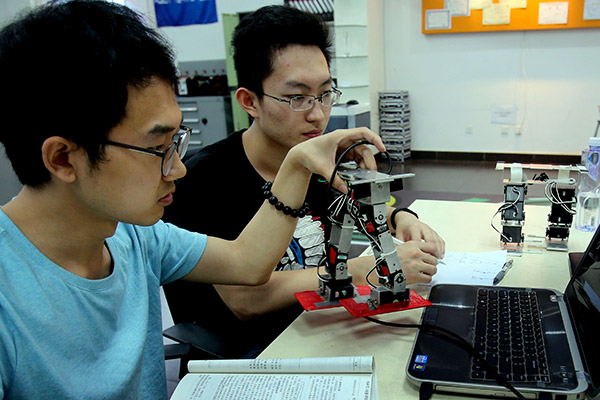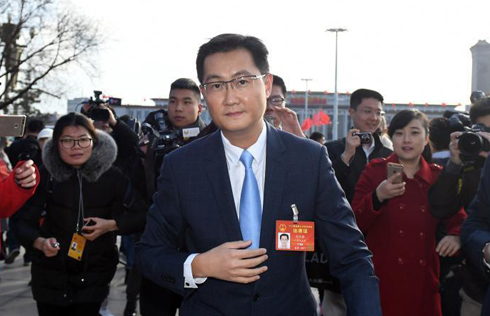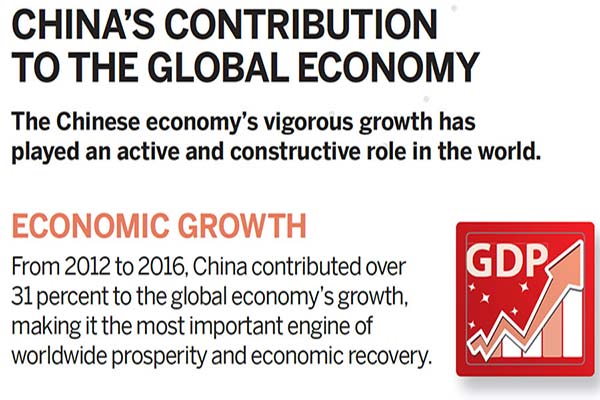University district bridges minds, markets
 |
|
Two college students from the University of Shanghai for Science and Technology work on the prototype of a robot. [Photo/Xinhua] |
To Li Yueqi, Party secretary of the Yangpu district of Shanghai, entrepreneurialism and innovation are a boat on which there are no passengers but only people who row it together.
As the most densely populated district in central Shanghai, Yangpu is home to at least 10 famous Chinese universities, including Fudan, Tongji and the Shanghai University of Finance and Economics as well as more than 100 research institutes.
According to Li, the large number of university students in this district is the biggest advantage that Yangpu enjoys. He said the students are sure to make a great contribution to the economy in the future.
As local leaders understand, a reciprocal system must be set up to attract startups to settle down in Yangpu. Therefore, the local government has used the best commercial and property projects to build up university scientific parks.
A total of 300 million yuan ($43.6 million) has been invested to expand the university lands from 4.2 square kilometers to 7 sq km now.
Twenty scientific parks have been set up in Yangpu, with the total area covering 1.83 million square meters. Seven of these parks have been jointly set up by universities and the local government. More than 80 percent of the small and medium-sized techcompanies have a university background.
At present, there are more than 6,000 technology companies registered in Yangpu. Up to 300 companies set up by university teachers and graduates are offered government help in Yangpu every year.
Shanghai Ruking Electronics Technology Co Ltd, which specializes in variable frequency technology, is one of the best examples illustrating the entrepreneurial atmosphere of the area.
Established in 2003, Ruking and industry leader Emerson set up a joint venture in 2014, in which Emerson invested 200 million yuan and Ruking holds the controlling stake with its technology.
"Our goal has always been very clear: working with the world's top 10 companies. Only in this way can we make ourselves first-rate," said Lei Huaigang, founder of Ruking and once a university teacher at Shanghai University.
Yangpu district has also worked with the Shanghai Municipal Human Resources and Social Security Bureau to set up a startup base. Investing 1 billion yuan, the startup base covers a total area of 50,000 square meters, fostering roughly 250 startup projects and 300 entrepreneurs. Approximately 50 percent of the projects here have been successfully incubated.
Shanghai had set up a foundation to help local college students who have started tech companies, with 50 million yuan being dispensed in the first phase. Half of that amount went to students from Yangpu district.
Li said: "While building a scientific innovation area, the market should play its role and the government should also shoulder its responsibilities."

















